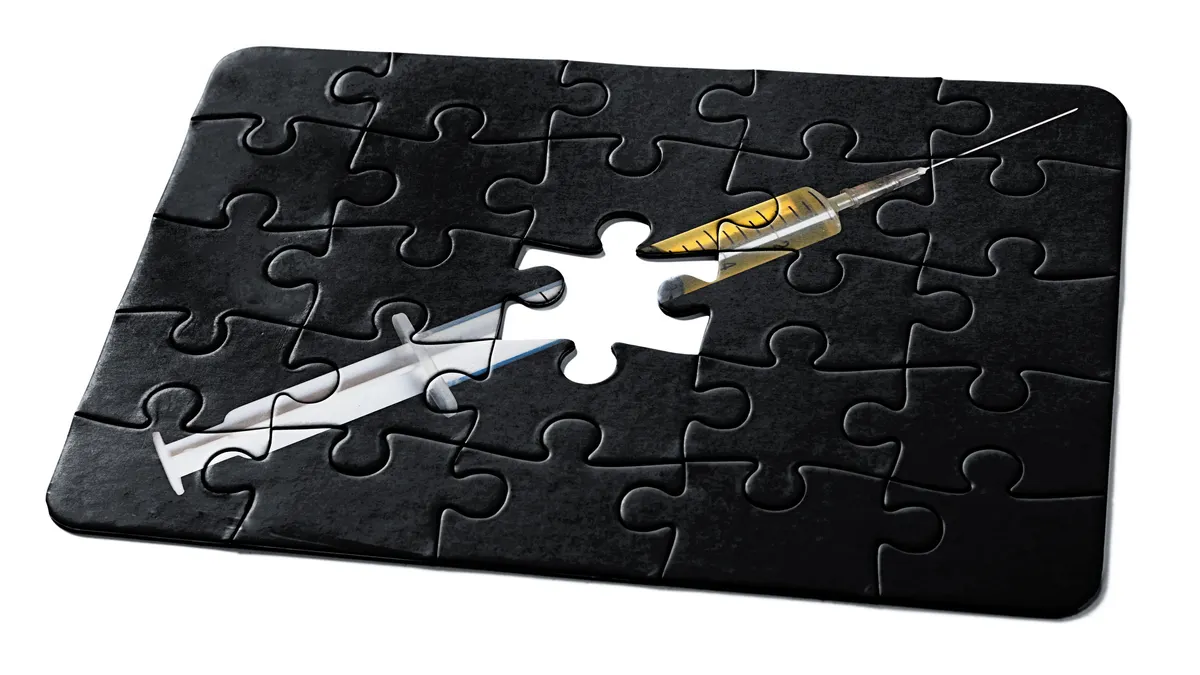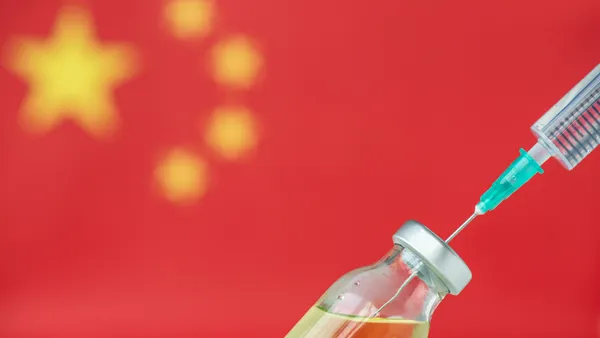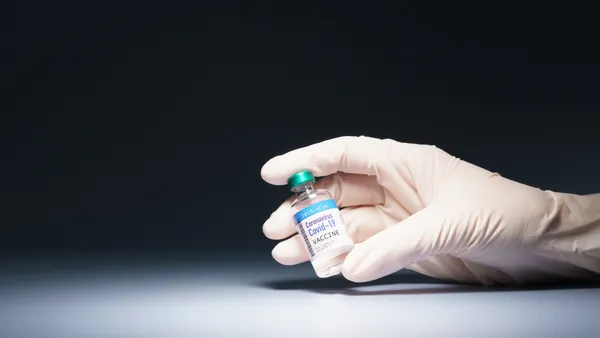Sirtris’ Dr. Michelle Dipp discusses maintaining corporate culture while integrating cutting-edge science and technology. Biotech business leader Michelle Dipp, M.D., Ph.D., has transitioned from a scientific background — with a medical degree and a Ph.D. — to the corporate side of the life-sciences arena with aplomb. Her achievements in steering the biotech company, Sirtris, to an acquisition by GSK earned her a Stevie Award for Women in Business, a Dealmaker of the Year award, and a promotion to a new role as VP of GSK’s Center of Excellence for External Drug Discovery (CEEDD). With both scientific and business experience, Dr. Dipp is well-versed to help identify novel technologies and partnership opportunities for GSK’s CEEDD unit. Having helped orchestrate a $720 million acquisition, Dr. Dipp is now charged with looking for new opportunities for GSK’s collaboratively focused CEEDD. The Deal Maker What led to GSK’s acquisition of Sirtris and what was your role in shaping the deal? DIPP. Sirtris is focused on a family of genes/enzymes called sirtuins, which control the aging process. Needless to say, this is a hot topic in the scientific community and the media, so our science generated quite a bit of attention. In my role as VP of corporate development, I steered the discussions we had with pharma companies, conducted due diligence for the deal, and then led the actual transaction. What drew us to GSK was a shared vision in terms of the significance of the science and the importance of the enzymes from a therapeutic perspective. It was clear GSK’s management team wasn’t just interested in sirtuins for treating Type 2 diabetes or neurology; the company wanted to develop drugs for various disorders, which was attractive to us. Secondly, we wanted a deal that would allow us to continue to foster Sirtris’ thriving biotech spirit. At the time, GSK was in the middle of restructuring its discovery group into DPUs, or discovery performance units. This was a perfect fit for us, because Sirtris is a prime example of what a DPU is supposed to be: a group of about 60 people who operate independently and who conduct everything from early research to the screening of compounds through to proof of concept in the clinic. We’ve maintained our senior management and many of our employees. We operate similarly to the way we performed before being acquired. We spent a lot of time thinking about not only how to structure the deal financially, but how to retain staff so we could foster a thriving biotech spirit. A Novel Concept What are the biggest challenges and opportunities to developing novel technologies and treatments for diseases associated with aging? DIPP. The greatest challenge with new technology is obtaining proof of concept in man. For those companies developing me-too drugs or drugs in a known class or using an established technology, the challenge is demonstrating safety or incremental benefit to the FDA. We know that our drugs work in animals and we’ve demonstrated safety in Phase Ia studies, but the greatest challenge is demonstrating efficacy in lowering glucose in patients with Type 2 diabetes, which we’ve already shown in our Phase Ib trial of SRT501, our proprietary formulation of resveratrol. On the flip side, any challenge is also, in and of itself, a huge opportunity. The opportunity for us is the use of these drugs beyond metabolic disease, such as neurodegenerative diseases and cancer, for example. It would be amazing if we found that by activating the same target, which is SIRT1, we can treat metabolic diseases, but also neurological diseases and cancer. This is probably the reason why GSK didn’t want to just enter into a compound option deal and engineered an acquisition. Seeds of Discovery What does your role as VP of GSK’s Center of Excellence for External Drug Discovery entail and what distinctive expertise do you bring to this position? DIPP. The CEEDD has been ongoing for a few years and collaboration is central to its operations. CEEDD continues to seek external assets, and Sirtris CEO Christoph Westphal, who has been named senior VP of the CEEDD in addition to his role at Sirtris, and I will be working to add value to GSK by identifying and accessing what we think are important new sciences. We will be surveying companies all over the world to find the hot new sciences that we can bring into GSK or develop with a partner. My background is a mix of science — with an M.D. and Ph.D. — and business — a background in corporate development at Sirtris and healthcare venture capital at the Wellcome Trust. This combination will be invaluable to my role at CEEDD. It’s important when evaluating new technologies to have a deep understanding of the science to ascertain whether it can lead to therapeutic benefit. From a business perspective, any scientific acquisition or collaboration has to make sense for GSK in the broader terms. There are a lot of great drugs and ideas out there, but if they don’t fall in line with our internal expertise, then it may not make business sense to develop a partnership. Business Accolades What factors led to your receiving the Stevie Award for Women in Business? DIPP. I oversaw two corporate successes for Sirtris in two years. First, I helped lead a very successful IPO in May 2007. The second achievement was, of course, the GSK acquisition. Awards for women in general — and the Stevie is an example of this — are important because they demonstrate the impact women have in the business world. These awards are empowering because they inspire other women to achieve their professional goals. In life sciences there are many great women scientists, but there are fewer women in executive or entrepreneurial roles. What’s nice about biotech is that because it’s still a relatively new and young field, it offers many opportunities for women who seek leadership positions. I encourage women to participate in professional organizations that provide a great way to network with other women and mentorship opportunities, gor example, WEST — Women Entrepreneurs in Science and Technology, which is a great group of professional women. I was also fortunate to have been nominated and named Dealmaker of the Year for 2008 by Mass High Tech, the Journal of New England Technology, and the Association for Corporate Growth Boston (ACG) in the life-sciences category. F PharmaVOICE welcomes comments about this article. E-mail us at [email protected]. Career Highlights Michelle Dipp, M.D., Ph.D., is VP of Center of Excellence for External Drug Discovery (CEEDD) at GSK. Previously, Dr. Dipp was a founding employee and VP of Corporate Development at Sirtris, a company focused on discovering and delivering small-molecule drugs to treat diseases of aging. She played a leading role in orchestrating the successful acquisition of Sirtris by GSK in June 2008 for $720 million. Before joining Sirtris, Dr. Dipp worked in healthcare private equity at The Wellcome Trust, London. She holds an M.D. and a Ph.D. in pulmonary physiology from the University of Oxford and did her postdoctoral research in the departments of Pharmacology and Cardiothoracic Surgery, John Radcliffe Hospital, Oxford. Dr. Dipp received the 2008 Stevie Award for Women in Business in the category of Best Executive of a nonservices business with fewer than 100 employees. Award for Business Excellence Michelle Dipp, M.D., Ph.D., VP, corporate development of Sirtris, a GSK company, was recognized with the Stevie Award for Women in Business in the category of Best Executive of a nonservices business with fewer than 100 employees. The Stevie Awards for Women in Business — produced by the creators of the American Business Awards — is an international competition recognizing the accomplishments of outstanding women executives, business owners, and the companies they run. The winners of the 5th annual Stevie Awards for Women in Business, which were selected by distinguished judges and advisors, were announced at an awards reception at the Marriott Marquis in New York City in November 2008. “These types of awards are important because they demonstrate the impact that women have in the business world," Dr. Dipp says. “These awards are empowering because they inspire women to achieve their professional goals. I think it is very important to focus on women in business, and it’s nice to have an award that is just for women." One of the contributing factors to Dr. Dipp winning the award was the leading role she played in orchestrating the acquisition of Sirtris by pharmaceutical giant GlaxoSmithKline (GSK) in June 2008 for $720 million. Dr. Dipp was a founding employee of Sirtris, which is focused on discovering and developing proprietary, orally available, small-molecule drugs with the potential to treat diseases associated with aging, such as Type 2 diabetes. Through the acquisition of Sirtris, GSK has significantly enhanced its metabolic, neurology, immunology, and inflammation research efforts by establishing a presence in the field of sirtuins, a recently discovered class of enzymes that is believed to be involved in the aging process. Sirtris has become part of GSK’s drug discovery organization, while continuing to operate from laboratories in Cambridge, Mass., as an autonomous drug discovery unit. Post-acquisition, Dr. Dipp is charged with managing the integration of Sirtris. In her role, Dr. Dipp wears many hats, overseeing business development, investor relations, and public relations. “Even though I’m fulfilling a business role, I’m selling science, which means I have to be able to answer technical questions," Dr. Dipp says. Before joining Sirtris, Dr. Dipp worked in healthcare private equity at The Wellcome Trust in London. Dr. Dipp did her postdoctoral research in the departments of Pharmacology and Cardiothoracic Surgery, John Radcliffe Hospital, Oxford. She has published several papers in peer-reviewed journals in the pulmonary field. She holds an M.D. and a Ph.D. in pulmonary physiology from the University of Oxford. Dr. Dipp teaches ballet and rowing to underprivileged children through Kids Enjoy Exercise Now (KEEN) and helped start Doctors for Africa, a nonprofit organization in the United Kingdom. Even though I’m fulfilling a busines role, I’m selling science, which means I have to be able to answer technical questions. DIGITAL EDITION — BONUS CONTENT Award for Business Excellence Michelle Dipp, M.D., Ph.D., VP, corporate development of Sirtris, a GSK company, was recognized with the Stevie Award for Women in Business in the category of Best Executive of a nonservices business with fewer than 100 employees. The Stevie Awards for Women in Business — produced by the creators of the American Business Awards — is an international competition recognizing the accomplishments of outstanding women executives, business owners, and the companies they run. The winners of the 5th annual Stevie Awards for Women in Business, which were selected by distinguished judges and advisors, were announced at an awards reception at the Marriott Marquis in New York City in November 2008. “These types of awards are important because they demonstrate the impact that women have in the business world," Dr. Dipp says. “These awards are empowering because they inspire women to achieve their professional goals. I think it is very important to focus on women in business, and it’s nice to have an award that is just for women." One of the contributing factors to Dr. Dipp winning the award was the leading role she played in orchestrating the acquisition of Sirtris by pharmaceutical giant GlaxoSmithKline (GSK) in June 2008 for $720 million. Dr. Dipp was a founding employee of Sirtris, which is focused on discovering and developing proprietary, orally available, small-molecule drugs with the potential to treat diseases associated with aging, such as Type 2 diabetes. Through the acquisition of Sirtris, GSK has significantly enhanced its metabolic, neurology, immunology, and inflammation research efforts by establishing a presence in the field of sirtuins, a recently discovered class of enzymes that is believed to be involved in the aging process. Sirtris has become part of GSK’s drug discovery organization, while continuing to operate from laboratories in Cambridge, Mass., as an autonomous drug discovery unit. Post-acquisition, Dr. Dipp is charged with managing the integration of Sirtris. In her role, Dr. Dipp wears many hats, overseeing business development, investor relations, and public relations. “Even though I’m fulfilling a business role, I’m selling science, which means I have to be able to answer technical questions," Dr. Dipp says. Before joining Sirtris, Dr. Dipp worked in healthcare private equity at The Wellcome Trust in London. Dr. Dipp did her postdoctoral research in the departments of Pharmacology and Cardiothoracic Surgery, John Radcliffe Hospital, Oxford. She has published several papers in peer-reviewed journals in the pulmonary field. She holds an M.D. and a Ph.D. in pulmonary physiology from the University of Oxford. Dr. Dipp teaches ballet and rowing to underprivileged children through Kids Enjoy Exercise Now (KEEN) and helped start Doctors for Africa, a nonprofit organization in the United Kingdom. F Even though I’m fulfilling a busines role, I’m selling science, which means I have to be able to answer technical questions.
An article from










